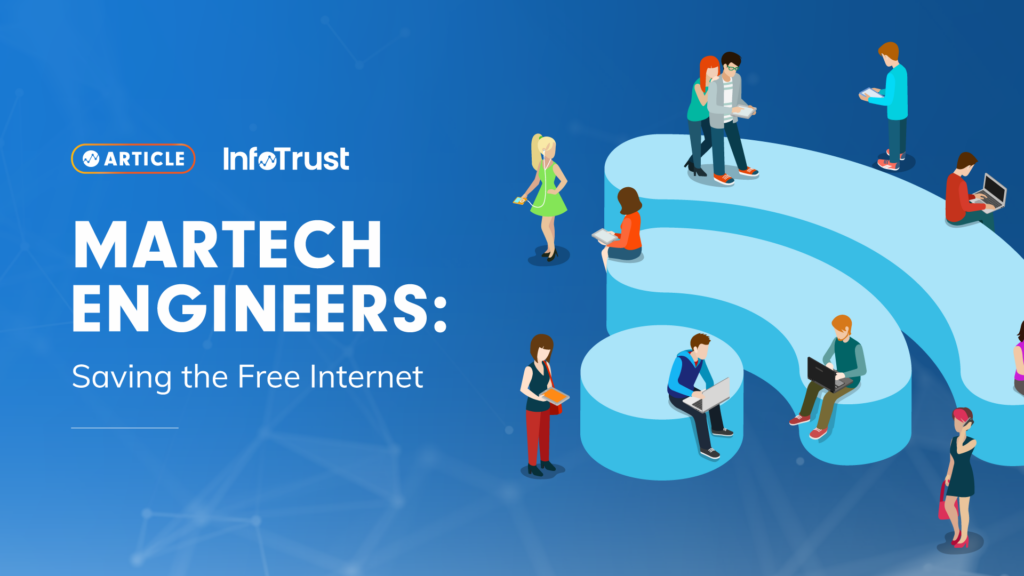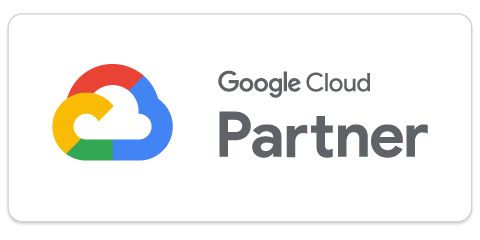The current social contract for a free internet is under attack, and it should be. Due to changes in how we view user data collection and the individual users’ consent to that collection, the way the internet is able to monetize itself is changing. In this article we will talk about the moral obligations the internet has to its users and how a martech engineer can respect users’ wishes while maintaining a profitable and free internet.
Monetizing the Internet
One of the main benefits of a global internet is the availability of information and communication at no cost. For example, a platform like YouTube takes hundreds of millions of dollars to run a year, yet costs nothing to consume. At no cost, YouTube can serve college lectures, new skill trade educational videos, and entertainment all for free with no barrier to entry. However, platforms who choose to monetize this way are not exactly free. YouTube makes money through advertising to you and the profitability of that advertising is what allows the service to stay free.
Now take a look at a platform like Netflix. In order to experience the platform, you have to pay to enter. All the content is behind a paywall, and you need to pay monthly to experience it.
While YouTube and Netflix are popular platforms for expressing my examples, they are far from the only platforms using these monetization tactics. In fact, across the entire internet you are either paying with your money, or with your time (consuming ads). If advertising were to become far less profitable it would be a large blow to the current contract for a free internet. Either the amount of advertising you see would largely increase or free platforms as we know them would begin to be replaced by “paywall” replacements.
How We Got Here: A Shift into Targeted Advertising
From the early 2000s until the past few years it was the Wild West in the advertising industry. In the beginning, most advertising was based on context instead of direct targeting.
An example of contextual advertising would be showing an advertisement for a discounted oil change on a tire website. We know users who are shopping for tires most likely own a car so an advertisement for an oil change should be relevant to them based on the context of where they are.
Direct targeting is a bit less subtle, and has become most of the advertising industry in the past 10 years. Direct targeted advertising happens when the company serving the ads knows what device you are on, what signals you have shown across various websites, and the advertiser will deliver ads meant specifically for you based on interest you have shown across the internet.
As technology evolved we were able to target users more effectively with direct ads. The entire martech industry slowly moved from contextual advertising and began to develop around technologies meant to track users from site to site. Contextual advertising is significantly less used these days and most tracking is about getting as much data as we can about every user into every platform.
As you can imagine, direct targeted advertising is highly effective and therefore profitable. However, in recent years users have become painfully aware of just how effective it is and public trust in the advertising industry has started to decay. Everyone has heard someone tell a story about saying something out loud and seeing an ad for it later that day. It is this distrust and extreme tracking that led to legislation around what is ethical to track.
GDPR, CCPA, and the Future of Privacy
It was the distrust of targeting advertising that catalyzed legislative change surrounding data and the right to privacy. First with GDPR (General Data Protection Regulation), then with CCPA (California Consumer Privacy Act), and now with individual European countries developing their own views and laws around the right to data disclosure and privacy, the future of targeting without consent is gone. While it’s impossible to predict exactly what legislation will be made surrounding the right to data privacy in the United States, trends show that legislation is coming and the market will be forced to change. Companies who want to be ahead of the curve need to get comfortable with the concepts of privacy, governance, and agility if they want to quickly navigate a changing market and come out on top.
The largest shift in privacy actually is not coming from legislation, but instead from the tech industry itself. The deprecation of third-party cookies will result in a massive blow to the targeted advertising industry. The 1:1 hyper targeting of users was made possible by third-party cookie technology making it trivial to have a single ID for a user everywhere they went on the internet. Browsers like Safari are already set to block third-party cookies automatically, and Chrome users can expect to lose third-party cookie functionality in the second half of 2024. Meanwhile, Google is planning on releasing their privacy sandbox to Chrome in the reasonably-near future to allow users time to explore privacy-centric targeting options prior to the targeting fall off. This should give marketers and engineers time to react in and experiment with new technologies meant to maintain profitability with a lack of signals.
Solving the Problem
So what exactly can we do about it? The data is leaving and we are going to be right back where we were in the ’90s and early ’00s. However, that is not exactly true. If you look at the tech stack available today, we are ages ahead of where we were before targeted advertising took off. With cloud computing, much more efficient data practices, artificial intelligence, and modeling we can analyze patterns, predict future trends, and design intelligent systems much better than we could in the past. We have years of data to model our marketing strategies off of. Engagement strategies will have to change, and the contract of data exchange between a user and a company will continue to evolve. It is up to the engineers in the martech space to create intelligent, yet clear, systems that maximize user data while making sure their right to privacy and intentions are consistently met, while also maximizing the previously collected data to analyze patterns which will allow more operating time for the former task. It is up to us to keep the internet free and open.



